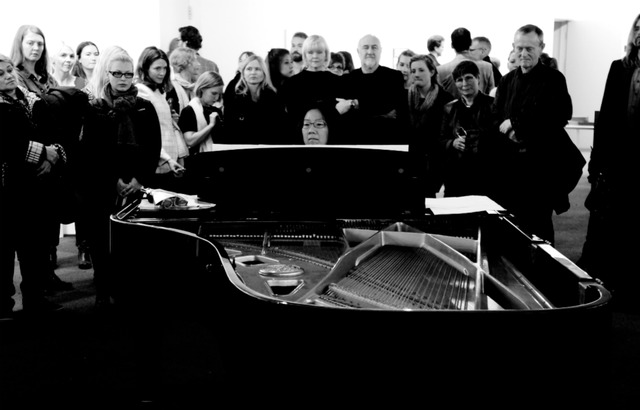‘Mathemusical Conversations’, which runs from 13-15 February 2015, is a joint workshop of the National University of Singapore Institute for Mathematical Sciences and the Yong Siew Toh Conservatory of Music in collaboration with the Centre for Digital Music at QMUL, and the Sciences and Technologies of Music and Sound research lab in France.
The conference will use an ambitious combination of innovative performances and presentations to examine the essence of music through mathematics. The rise of computing and the digitisation of sound has led to new ways to interact with, model, and create music. Every step of the process of music making can be modelled and studied using mathematics and computational methods, and the internationally renowned speakers and globally distinguished performers at the conference will engage a broad audience in how a numerical understanding of music can increase its enjoyment.
Professor Chew will deliver a lecture entitled ‘Motion and Gravitation in the Musical Spheres’ in which she will present a mathematical model of tonality that uses a centre of gravity concept to illustrate music’s motion around a tonal centre and will argue that time in music can be modelled according to the laws of motion. Illustrations will be drawn from music by composer Paul Schoenfield, whose piece she will also perform with violinist Ning Kam and clarinettist and technologist, Eran Egozy.
In a pre-conference study day Professor Chew and three of her current and former PhD students -Katerina Kosta, Luwei Yang, and Jordan Smith – will give an overview of QMUL’s music research and conduct tutorials for students at the prestigious Raffles Institution.
Speaking about the conference, Professor Chew said, “New technology enabled by mathematics means that almost all of the music we listen to can in some way be explained or processed by computers, creating fantastic new opportunities for analysis. Just like understanding more about the way our universe is assembled adds to our fascination with its beauty, so a mathematical understanding of music allows us appreciate it in new and deeper ways.”
More Information:
Full details of the Mathemusical Conversations conference are available on their website.



